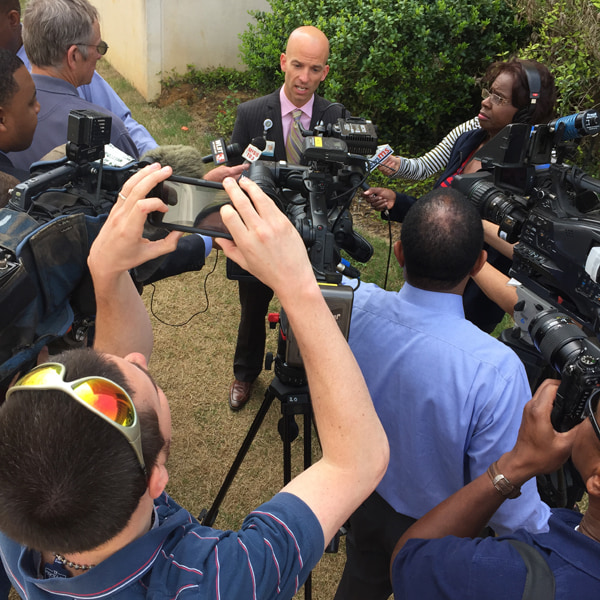Numerous “spice” overdoses put health officials on high alert

Medical experts at the University of Mississippi Medical Center met with metro-area media Monday to highlight the extreme dangers that come with using "spice," a potent synthetic drug meant to re-create the high that comes with marijuana. UMMC has treated nearly three dozen patients for adverse effects of the drug over the Easter weekend.
About 33 people since Thursday night have been seen at UMMC's Emergency Department for symptoms of spice overdose, and the drug is suspected of causing the death of another person who was not a patient at the Medical Center, said Dr. Alan Jones, chair of the UMMC Department of Emergency Medicine.

Jones said the number of patients at UMMC is likely to go up, having already been alerted to more possible spice-overdose patients entering the Emergency Department on Monday.
The individuals sickened by the drug have been tracked by the Mississippi Regional Poison Control Center since Thursday, state Department of Health officials say. The drug "causes very significant adverse health consequences involving emergency care and hospitalization," said Dr. Robert Galli, a professor in the Department of Emergency Medicine and executive director of TelEmergency.
Those seen at UMMC's ED displayed agitation, sweating, hyperactivity, hallucinations, acute psychosis, and in some situations, were in a comatose state. Some of them had prolonged symptoms and complications of rhabdomyolysis, or rapid breakdown of muscle tissue, requiring hospitalization. All are thought to be residents of the Jackson metropolitan area.
The symptoms can begin with "one puff," said Jones.
"The problem is we don't know the potency of what we're dealing with," he said. "Everybody will have a different reaction. I would say one puff could be bad enough to put someone in a coma."
Jones said most of the patients are in their 20s or 30s, however there have been younger cases seen at the Medical Center over the weekend.
Reports out of Austin, Texas over the same weekend show emergency medical services transporting some 20 patients to local hospitals, said Jones.
"Spice" is a catch-all name for a wide variety of herbal mixtures that produce experiences that are sometimes similar to what a person feels after smoking marijuana. Often marketed as "safe" alternatives to marijuana, spice is generally ingested by smoking and sold under a variety of names, including K-2, fake weed, Yucatan Fire, Scooby Snax, Anthrax, Mojo, Skunk and Moon Rocks.
They contain dried, shredded plant materials and a mix of chemical additives that produce psychoactive, or mind-altering, effects. Labels on their packaging tout "natural" ingredients and say they are "not for human consumption," but in fact, their active ingredients are synthetic, or "designer," cannabinoid compounds.
Although spice users report experiences similar to those produced by marijuana, including elevated mood and perception and relaxation, the effects are often much stronger than marijuana. Synthetic marijuana is often more toxic to the brain than marijuana because its potency can be 100 times greater or more than THC, which is the active ingredient in pot. "Some of the patients we've seen over the weekend have said, 'This is not like anything else we've used before,' " Galli said.
The Department of Health asks any health-care providers or emergency personnel to report suspected cases to the Mississippi Regional Poison Control Center at 1-800-222-1222.


